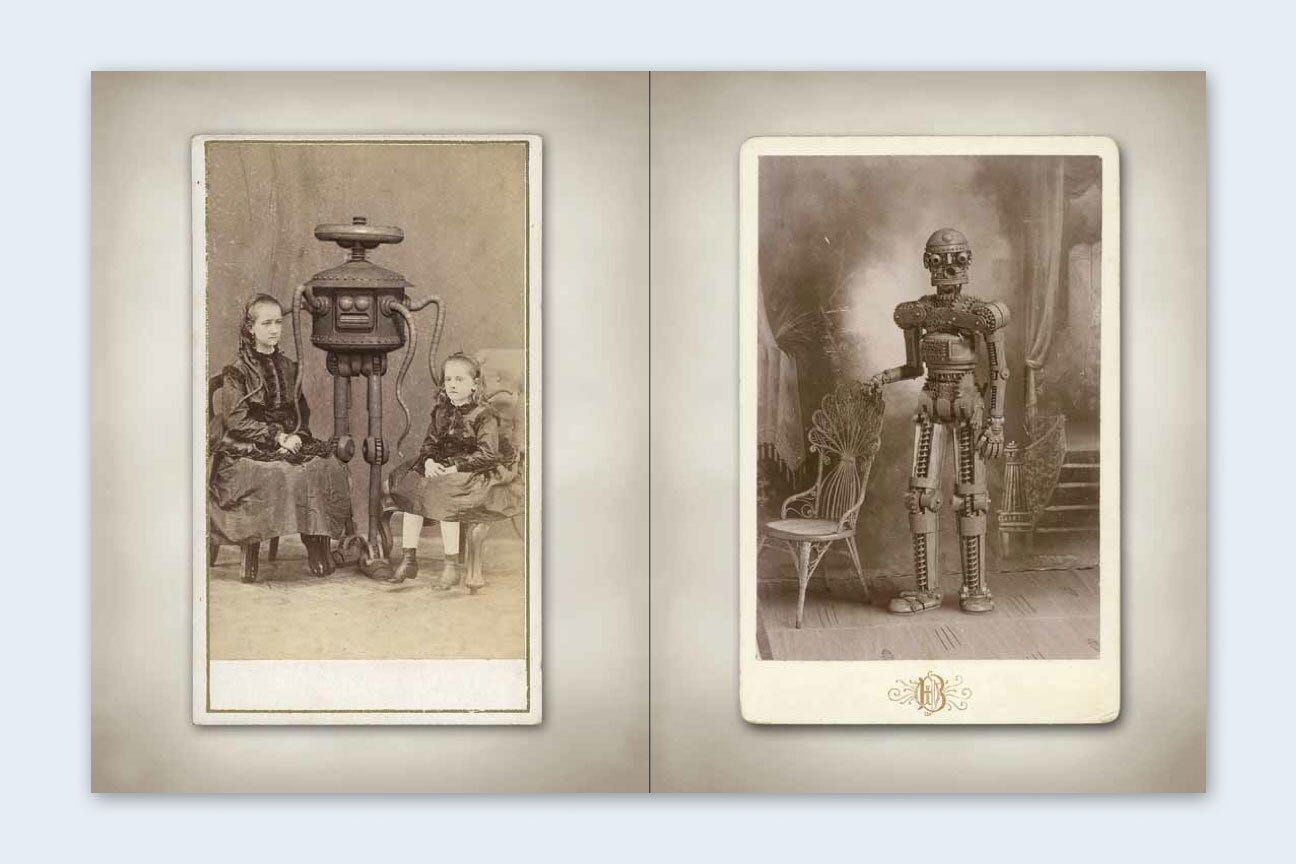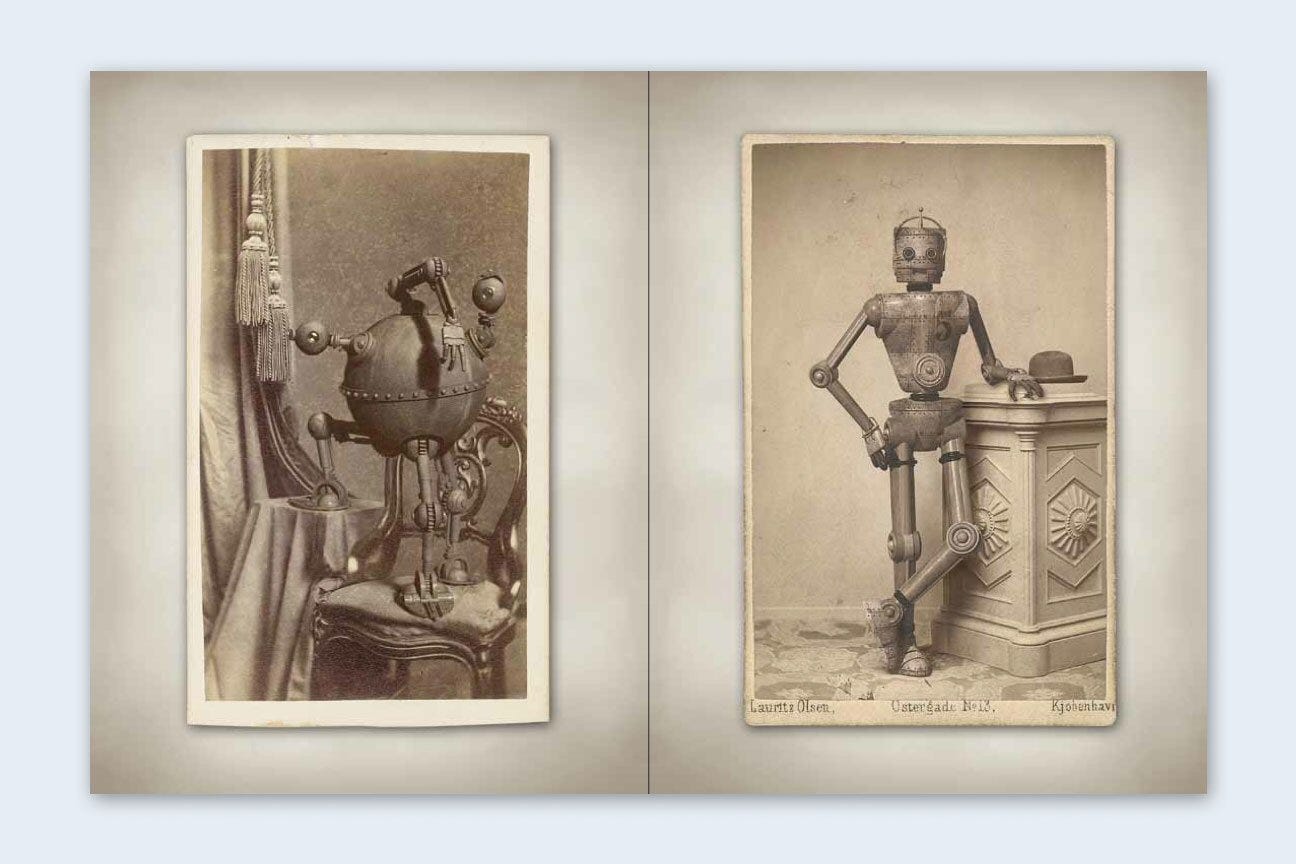Parasocialism: The oligarchic use of performance arts and technological media to hijack communal relations and generate an allegiance to a mass (global) culture, and with it a childish dependency on public figures, policies, and technologies.
A parasocial relationship is a one-way relationship. It’s a relationship with somebody that you have never met and who doesn’t even know that you exist.
Parasocial relationships are central to the illusion that celebrities or powerful world figures generate. When we are pulled into a parasocial relationship, we feel like we know the public figure, that we personally like them, even love them, and that they would like us if we met. We feel we can trust them.
Parasocialism began to form with the printing press, but it didn’t really get moving until the last 120 years, when movies and radio were invented (both around 1900), then TV in the 1950s, and finally, the internet in the 1990s. (Social media is the apotheosis of parasocialism.)
These four technologies made parasocialism and global culture both possible and inevitable.
As researcher Alan Watt put it:
People used to talk before radio came along, or TV. They used to talk to each other. Strange concept. And they talked about everything that happened in their lives and their speculations, or their wishes, or fantasies . . . or their own history and their family history. Things that were rather fascinating. But once radio came in, and then television, suddenly everyone is sitting there all quiet, listening to this little speaker blabbing away, and the funny little man on the screen; and all conversation between people pretty well stopped. When the TV goes off, the conversation, Brzezinski said, it comprises of [sic] all the info that has just been downloaded by the television set. That’s an example of behavior modification through alteration of your immediate environment.
Mass media was always designed in such a way that people would project onto public figures and experience them to be as meaningful and important in their lives as the people they’re interacting with on a daily basis. How many of us grew up as teenagers with celebrity posters on our walls?
Part of growing up in the 20th and 21st centuries, part of the teenage rite of passage, is to find our parasocial figures, or parasocialites.
Globo-Culture & Pan-Humanity
The idea of being part of a planet and part of a collective humanity is also central to parasocialism.
The idea that we can see the planet from the outside—which astronaut Edgar Mitchell called “the overview effect”—is only possible because of the advanced technology to take photographs from satellites and send them back to Earth. We do not know that these images are real, but we take it on trust.
Likewise, the kind of statistics and communication systems that allow us to be aware of how many people there are (allegedly) on the planet, and where they and everything else is situated, have facilitated “global consciousness,” or what Marshall McLuhan called (in the early 1960s) the global village.
The term designates the whole globe becoming a community that we are all part of, which is only possible for people to experience because of parasocialism.
“Village” is a word to describe a small community, and the globe is the ultimate population center. Since a village cannot be global, it’s a contradiction in terms, an oxymoron. Since McLuhan was a smart guy, we can assume this was deliberate.
Is it really possible, therefore, for a planetary community to exist? Or for planetary consciousness to exist? The answer is that it is only possible (currently) through technology. The kind of consciousness that we develop through technology is what we call planetary.
It is globalism. It is also transhumanism.
Because of this, the idea of humanity has itself become transhumanist over the past couple of centuries. The pantheistic view of “humanity” is one that we are supposed to develop to be good people, and it implies being global citizens within a global system.
All of this is consistent with a long-term parasocial engineering psyop (psychological operation).
There’s 20% off for multiple submissions. Contact me for details.
Men Like Gods (Early Parasocialism)
At some point, perhaps long before the technology, it was observed that human beings have a tendency to develop parasocial relations with performers. The question then arose, for certain members of a tribe or community, inevitably, of how to exploit that.
Based on archeological evidence of secret societies in prehistory (c.f. Brian Hayden), it seems that the very earliest kinds of performers—shamans and sorcerers—were, from the start, using this tendency of humans to relate parasocially as a means of social control and interpersonal manipulation.1
If so, then all the more modern forms of parasocial performance—movies, TV, pop music, political propaganda, social media, etc.—only represent later developments of technological media that were never actually divorced from this primary, prehistoric function and purpose: supplanting human beings’ connection to their souls, their ancestors, their community, and God, as a means of inserting an elite power system into that chasm.
Parasocialism entails a certain small super-set of humans becoming “as gods” to other humans. (The word parasocialites sounds quite a lot like parasites.)
Since parasocialism requires the replacement of direct, local relations for technologically-mediated ones, it means that we get cut off from our bodies, and our connection to our bodies, by the kinds of experience which the parasocial technology facilitates.
We are cut off from our communities, likewise, as we are lured into a counterfeit experience of our bodies, and of community, via the technology.
As we lose touch with Nature and our bodies, we also lose touch with our own natures, and hence our ancestors.
A Singularity to Nowhere
For thousands of years, most human beings only had the experience of being part of a small population center: a family, a village, a local community.
They might have looked up to people within that community—teachers, guides, elders, and so on. They might have learned a musical instrument or written poems and performed plays.
There would have been forms of creativity, self-expression, culture; but it would all have been local. It would have been inseparable from finding one’s own place and one’s own way of being in the world, and in life.
Finding our own sense of who we are and what our purpose in life is was once facilitated by observing the traditions of our ancestors, all the things our ancestors discovered before us.
At some point, all of that was hijacked.
If this hijack began prehistorically—like a Serpent in the Garden—it became massively accelerated at an observable point in our history.
We are now at, or near, the highest point of that bell curve, as it turns into a vertical line to nowhere. The singularity.
As we invest more and more of our time, energy, and attention into the technologically generated parasocial realm, so our dependence on it grows, and so its power over us increases, until we are slaves building a pyramid that is our own prison.
The question is: have we also built into its construction, secret passages by which to someday leave?







The indentured cling to the activities of the ambitious for the felt sense of following greatness, not from an innermost felt activity of their own, but for the desire to consume the body of the other. To confuse the life and being of the celebrated other, through parasocial compulsion becomes a crude autonomic through which many sense greatness for themselves, wholly devoid of autonomy.
The lasting and immutable megalith forces us to look to the stars, because it’s damning affect is too nauseating to look upon directly.
Although i do not have the answer to aforesaid question posed at the end of this essay, i must say that 2 luminaries that are conjured up subsequent to musing on this topic are: the novelist, Dostoevsky; and the mystic Gurdjieff. In each case, the works of these men depict man as lost - and unconscious - in the way they think, act and behave: the former, in works s/a, 'The Idiot', and, 'Crime & Punishment'; the latter in his trilogy: 'Book 1: 'Beelzebub's Tales to His Grandson'; Book 2: 'Meetings With Remarkable Men'; Book 3: 'Life is Real Only Then, When 'I Am.'' Suffice it to say, a person could do a lot worse than to choose these 2 men if becoming a more conscious and conscientious human being is your goal! That is all!! RGB-Y5 out!!!